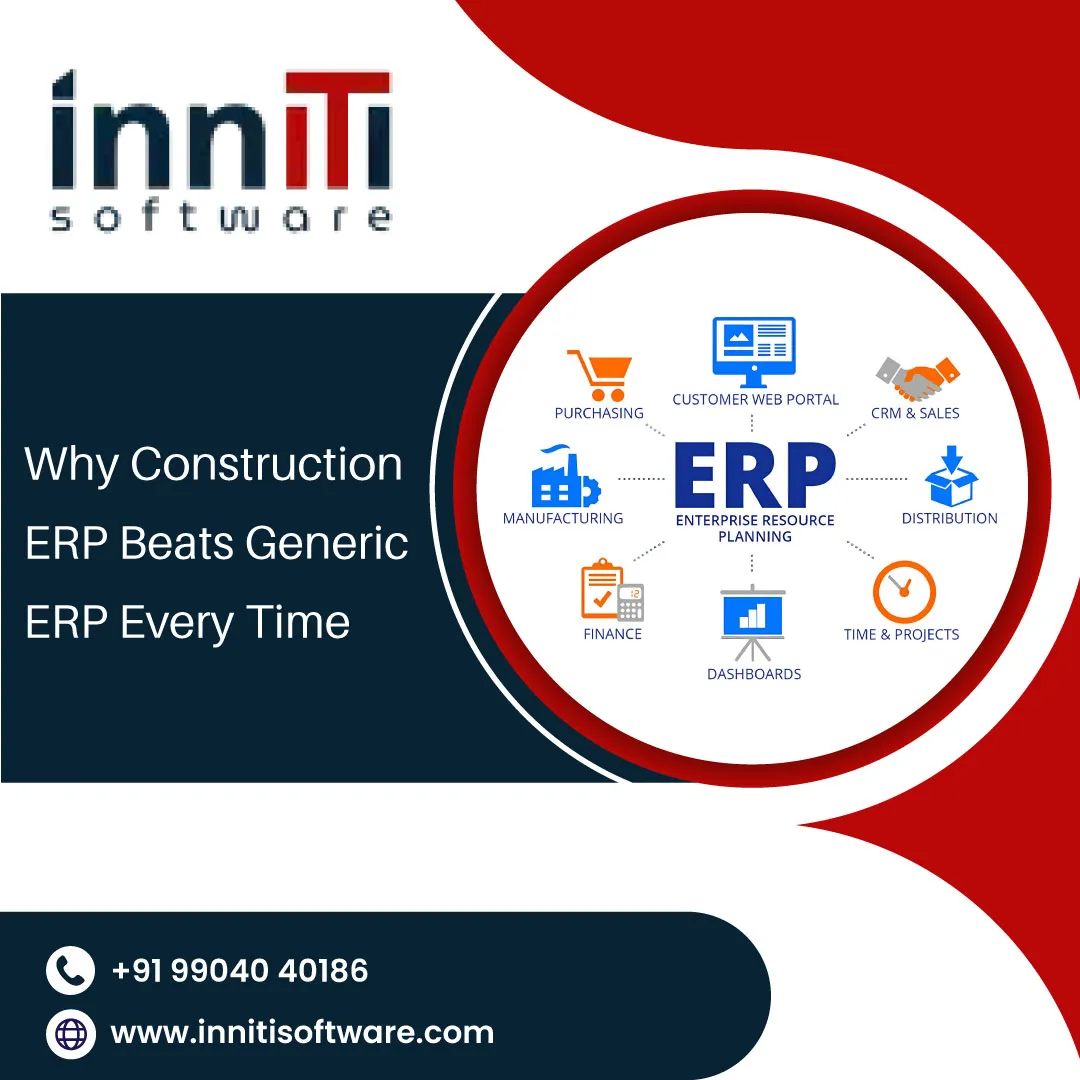
| Call Now | +91-990-404-0186 |
|---|---|
| +91-990-404-0186 | |
| Video Demo | Available |
| Eligible Region | India |
| Category | Construction ERP |
| Payment Methods | Cash, UPI, Net Banking |
In the construction industry, managing multiple projects, tight budgets, and strict compliance requirements presents daily challenges. While ERP software has become essential for streamlining operations, not all ERP systems are built with construction in mind. This raises an important question: Industry-Specific ERP vs. Generic ERP — which is the right choice for builders, contractors, and construction companies?
In this article, we'll cover:
| Dimension | Generic ERP | Construction ERP |
|---|---|---|
| Purchase & Procurement | Standard POs, supplier management, invoice matching. | Multi-site requisitions, RFQs, vendor comparison, procurement tracking, site-to-store flow. |
| Project Management | Basic scheduling, limited visibility, requires customization for BOQ/WBS. | Advanced tools: BOQ integration, WBS, progress tracking, cost-to-completion, delay alerts. |
| Billing & Revenue | Product-based billing (unit × price). | RA billing, milestone-based billing, subcontractor billing, retention money tracking. |
| Budget & Cost Control | Company-wide budgeting, generic cost reports. | Jobwise & phase-wise budgets, planned vs. actual tracking, cost-to-complete forecasting, margin analysis. |
| Compliance | Generic compliance (GST, VAT, statutory). | Construction-specific compliance: GST, TDS, retention, labor laws, safety norms, tender guarantees. |
| Customization | Heavy customization needed for construction workflows, raising cost & time. | Minimal customization with built-in workflows, faster setup. |
| User Experience | Broad, office-centric, complex UI; steep learning curve for site teams. | Intuitive, field-friendly, mobile-ready; mirrors construction workflows. |
| Implementation | Longer timelines due to complexity & customization; higher IT dependency. | Faster implementation with ready-to-use construction modules. |
When comparing Construction ERP vs. Generic ERP, the choice is clear. For builders, Inniti ERP is the smarter, industry-specific solution that helps deliver projects on time, on budget, and profitably.